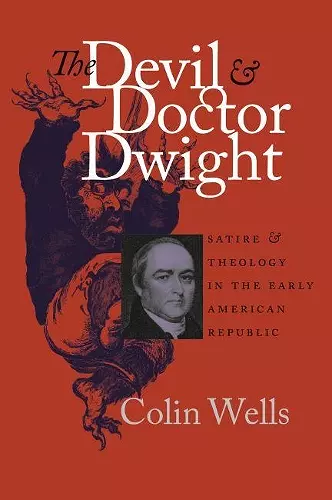The Devil and Doctor Dwight
Satire and Theology in the Early American Republic
Format:Paperback
Publisher:The University of North Carolina Press
Published:30th Apr '02
Should be back in stock very soon

At the close of the eighteenth century, Timothy Dwight - poet, clergyman, and, later, president of Yale College - waged a literary and intellectual war against the forces of ""infidelity."" The Devil and Doctor Dwight reexamines this episode by focusing on The Triumph of Infidelity (1788), the verse satire that launched Dwight's campaign and, Colin Wells argues, the key to recovering the deeper meaning of the threat of infidelity in the early years of the American republic. Modeled after Alexander Pope's satiric masterpiece, the Dunciad, Dwight's poem took aim at a number of his contemporaries, but its principal target was Congregationalist Charles Chauncy, author of a controversial treatise asserting ""the salvation of all men."" To Dwight's mind, a belief in universal salvation issued from the same naive faith in innate human virtue and inevitable progress that governed all forms of Enlightenment thought, political as well as religious. Indeed, in subsequent works he traced with increasing dismay a shift in the idea of universal salvation from a theological doctrine to a political belief and symbol of American national identity. In this light, Dwight's campaign against infidelity must also be seen as an early and prescient critique of the ideological underpinnings of Jeffersonian democracy.
"At the end of the eighteenth century one American realized that the Enlightenment's attack on revealed religion was not a rational critique but the assertion of a rival, man-centered belief system.... Here at the beginnings of the most fundamental of all American culture wars, Colin Wells discovers the most eloquent voice warning Americans against national and individual self-celebration." - David S. Shields, The Citadel
ISBN: 9780807853832
Dimensions: unknown
Weight: 360g
272 pages
New edition